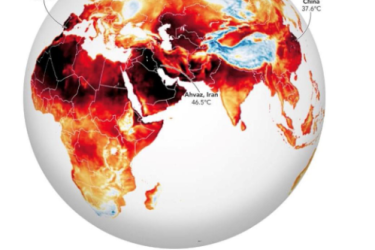fascism

The crisis of liberal hegemony is the reason why so many Europeans are turning to the extreme right

Trump, fascism and the authoritarian turn

For revolutionaries, the period must be defined by the international fight against the far right

This changes everything: The threat of Trumpism for South Africa

Trump 2.0: A new stage of imperialism

Recognising fascism in India: If not now, then when?

The Trumpist coup, US-style fascism and some loci of resistance

The age of neofascism and its distinctive features

Walden Bello — Fascism is at the gates. How should we counter it?

War, fascism and revolution: Boris Kagarlitsky on why Putin’s Russia invaded Ukraine

Climate collapse threatens slide to fascism and war

Tory rebels: Mad hatters and creeping fascism in Britain